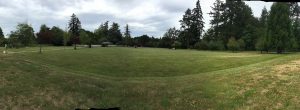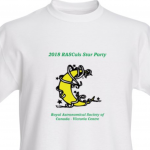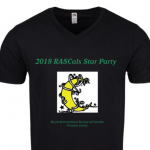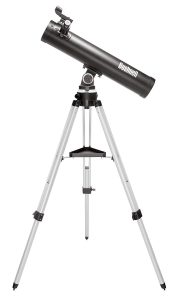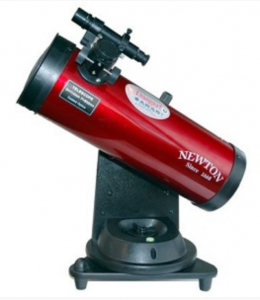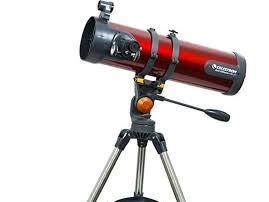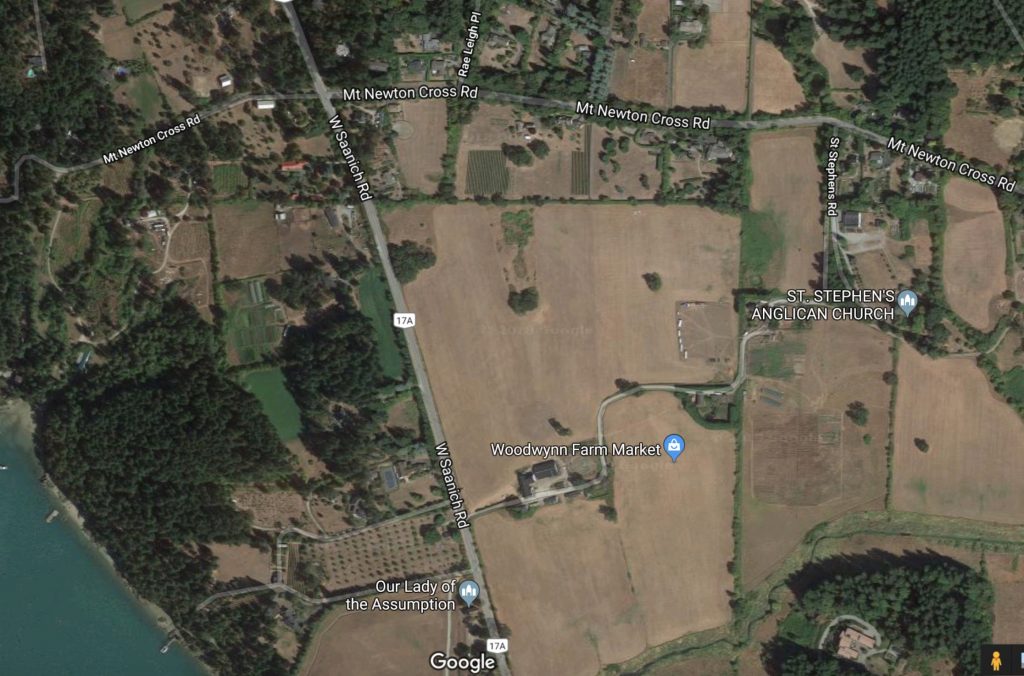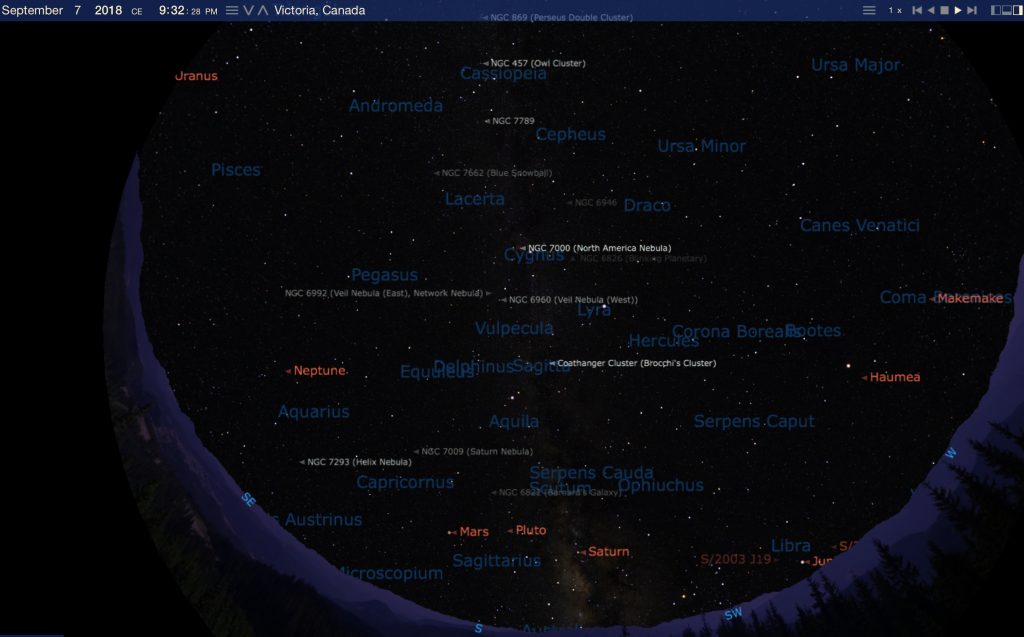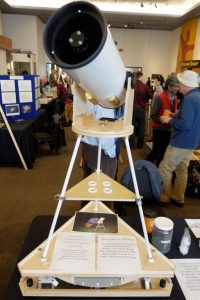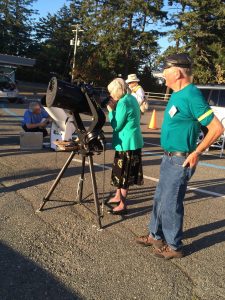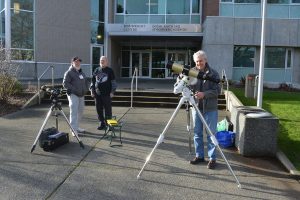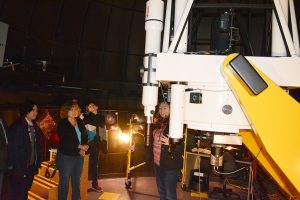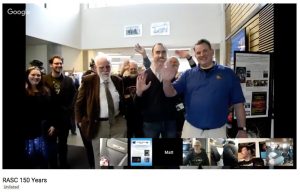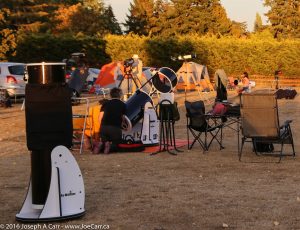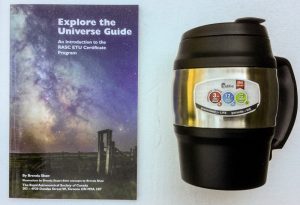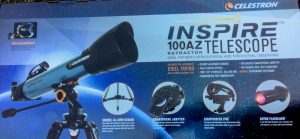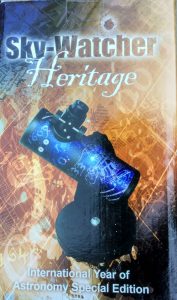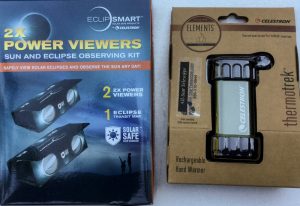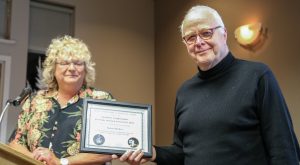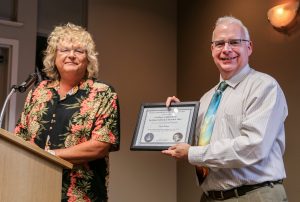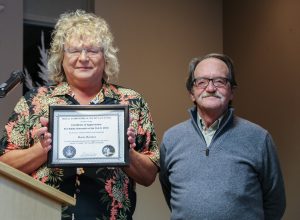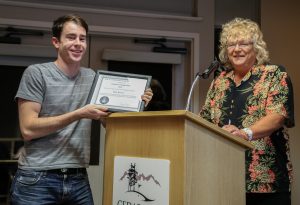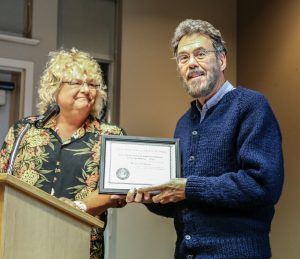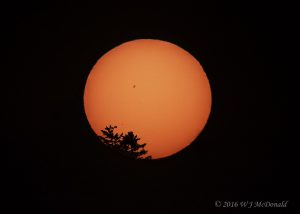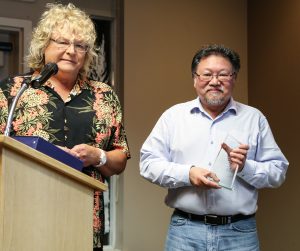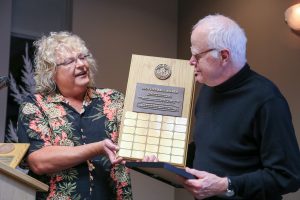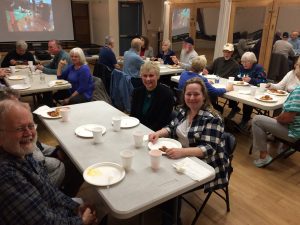The Friends of the Dominion Astrophysical Observatory (FDAO) and RASC Victoria Centre will be hosting twenty Saturday evenings at the DAO, featuring guest speakers, solar and nighttime observing with telescopes provided by RASC Victoria Centre volunteers, tours of the historic Plaskett telescope, and more! Rain or shine, we will have something for everyone to experience.
Time: 7:15 pm to 10:45 pm
Dates begin with International Astronomy Day on April 21st . Here are all the dates:
- April 21st and 28th
- May 5th, 12th, 19th and 26th
- June 2nd, 9th, 16th, 23rd and 30th
- July 7th, 14th and 21st *note* the DAO site has scheduled maintenance that does not allow us to open July 28th
- August 4th, 11th, 18th and 25th
- September 1st
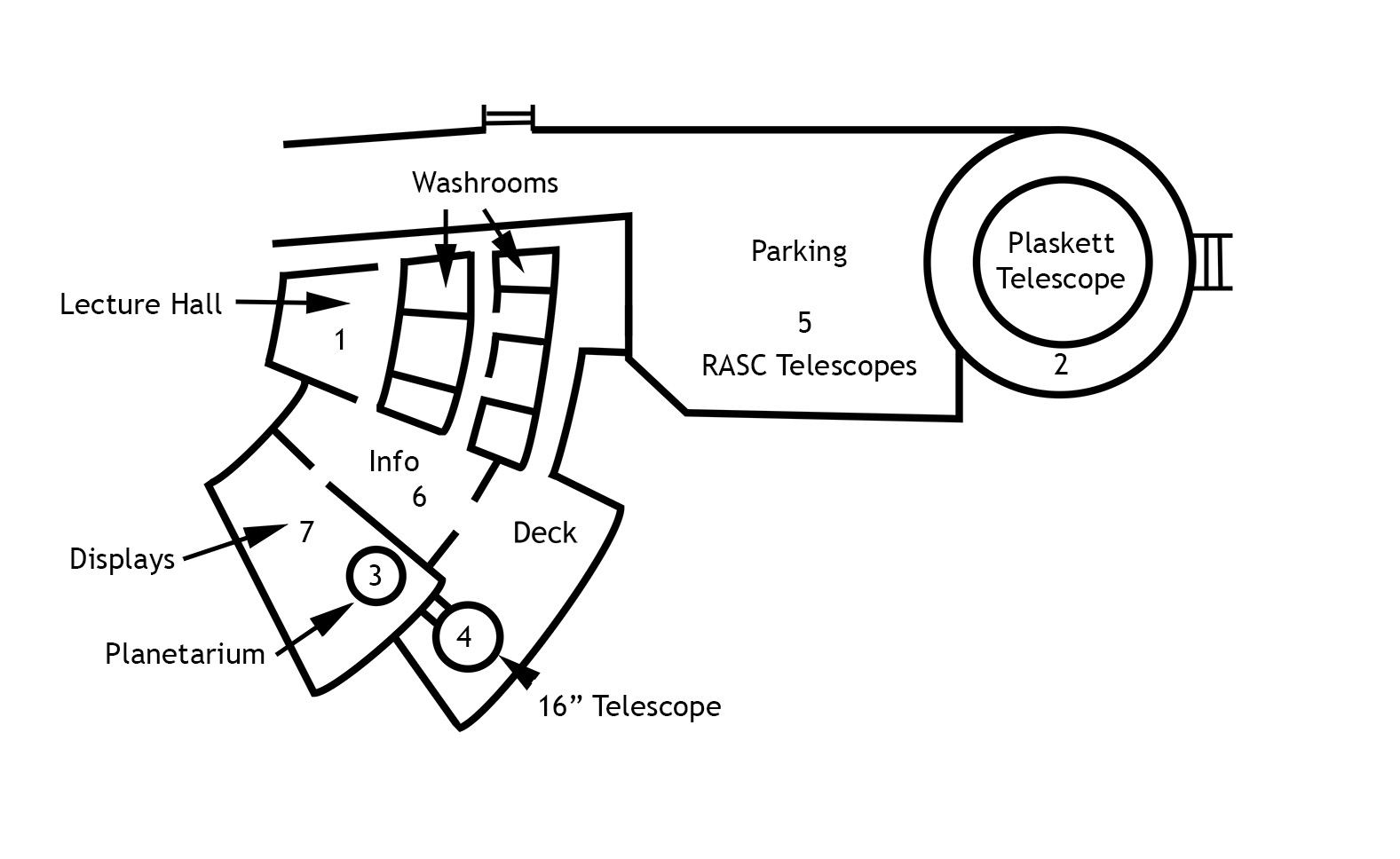
Saturday Star Parties at the DAO run every Saturday evening from April 21st to September 1st. To enhance your experience please note the following venues before you arrive. Activities are broken up into seven main areas,
- Lecture Hall – This season we have a full slate of topical presentations from the astronomy community which includes researchers, authors and passionate amateurs. There are possibilities of surprise guest speakers. Come early most presentations start at 8:30 p.m. and some though not all repeat in the evening.
- Plaskett Dome – The dome is a heritage site, and not to be missed. Tours are approximately 30-45 minutes long and start at 7:45 p.m. (30 min) Two other tours start at 8:45 p.m. (45 min) and 9:30 p.m. (45 min). Special Kids Tour 8:15 p.m. (30 min)
- Planetarium – Planetarium shows run 6 times during the evening and are approximately 30 minutes in length. Come inside and learn about the constellations, and even a little sky lore!
- 16” Telescope – This research-grade telescope was originally located on Mt Kobau near Osoyoos for site testing towards potentially building an observatory there. It was then moved here to the DAO, and then from another area on the DAO property to this site when the Centre of the Universe building was constructed in the early 1990s. It is now available for viewing “live” through an eyepiece. The telescope is open subject to weather conditions on many of the Saturday nights.
- RASC Member Telescopes – Royal Astronomical Society of Canada members have been long standing participants at Saturdays nights at the DAO for nearly 100 years. Weather permitting, members will take you on a telescopic tour of the evening sky.
- Information Area – There are volunteers available to help you with your evening visit and if you’re interested they can let you know how you can get involved in astronomy activities in Victoria. Kid friendly programming is available in this same area. FIRST Robotics BC will be in attendance several times during the summer.
- Interpretive Centre Displays – The displays from the former interpretive centre show Canada’s role in astronomy and contain a number of historical artifacts of interest. This year the displays will be enhanced with the addition of new kiosks that will feature Knowledge Network’s Space Suite series and other programming. Stay tuned for their debut.
Saturday Star Parties at the DAO 2018 Presentations
Saturdays’ Children’s Programmes
7:45 – 8:00 p.m. “Out of this World” Interactive Presentation – Auditorium
8:00 – 8:15 p.m. “Stories in the Skies” – Planetarium
8:15 – 8:45 p.m. “Meet the Telescope” Tour – Plaskett Dome
8:45 – 9:30 p.m. Children’s Activities – Information Area
- Make and Take Craft Tables
- Family Scavenger Hunt
- IPad Interactives
- Night Sky Viewing
Speakers
April 21st 2018 – 8:30pm repeats at 9:30pm
Gateway to the Stars: Science, Civic Identity, and Tourism at the Dominion Astrophysical Observatory (DAO), Victoria B.C. 1903-1941 – Dan Posey
Abstract:
The Canadian astrophysics program rapidly developed between 1903 and 1914, leading to the wartime construction of what was hoped to be the world’s largest research telescope. Following its announcement the Victoria observatory quickly developed into a widely visited tourism destination, operating an extensive public outreach program. Throughout the 1920s Dominion Astrophysical Observatory staff produced several discoveries on the forefront of astrophysics, further boosting the institution’s public image.
Bio:
Dan Posey is a graduate of the University of Victoria’s history MA program, a board member of the Friends of the Dominion Astrophysical Observatory, and a member of the Royal Astronomical Society of Canada, Victoria Centre.
April 28th 2018 – 8:30pm repeats at 9:15pm
Introduction to the Night Sky – David Lee
Abstract:
The night sky can be a bewildering maze of disconnected dots, flashing streaks of light and predictable events that appear just like clockwork. But most of all it is filled with mystery and beauty. Come and learn what’s up in the sky and how best to view it.
Bio:
David Lee is an avid photographer who over 20 years ago turned his camera upwards to the sky capturing astronomical images of the solar system and beyond. Through the Royal Astronomical Society of Canada he has been an advocate of astronomy and the sciences through its public outreach programs. Currently working in the Information Technology sector he hopes to retire soon to become even more of a tourist of the night sky.
May 5th 2018 – 8:30pm repeats at 9:15pm
The Improbable Telescope: From the Shadow of War to the Edge of the Country the Incredible Story of the Plaskett Telescope – Scott Mair
Abstract:
Who would build a telescope on the rainy West Coast during the First World War? The incredible dream of John Stanley Plaskett, how it came to be and it’s impact on the world of astronomy.
Bio:
Scott Mair is an award winning science educator: Canada’s prestigious Michael Smith Award for science promotion and the first Canadian to win the National (US) Association for Interpretation’s Master Interpreter Award. Scott learned to love dinosaurs while curator of education at Alberta’s Tyrrell Museum, the mountains as a chief park interpreter with Alberta Parks, traffic while at the Natural History Museum in Los Angeles and stars as the founding director of Victoria’s Centre of the Universe.
May 19th 2018 – 8:30pm repeats at 9:15pm
Watching the Cold Universe from Chile: Why ALMA Matters – Dr. Gerald Schieven
Abstract:
The Atacama Large Millimeter Array (ALMA) is a giant multinational observatory located in the high desert of northern Chile, and made up of 66 telescopes designed to study cold gas and dust in unprecedented detail. In this talk we’ll learn what and why ALMA is, what it’s like to work there, and about some of the astonishing discoveries ALMA is making.
Bio:
Gerald Schieven is an astronomer at NRC. A native of Ontario, Gerald got his PhD from the University of Massachusetts in Amherst. He has worked at Queen’s University in Kingston, NASA’s Jet Propulsion Lab in Pasadena, the Dominion Radio Astrophysical Observatory in Penticton, and the James Clerk Maxwell Telescope in Hawaii, before moving to Victoria in 2008 to lead the Canadian support of ALMA operations.
May 26th 2018 – 8:30pm repeats at 9:30pm
History of the Hubble Space Telescope – Dr. Chris Gainor
Abstract:
The Hubble Space Telescope was launched 28 years ago in 1990. After overcoming problems caused by a defective main mirror, Hubble has made discoveries that have revolutionized our view of the universe we live in. This talk will cover the history of Hubble based on a book the speaker is writing.
Bio:
Chris Gainor is a historian specializing in the history of space flight and aeronautics. He has four published books and is currently writing a history of the Hubble Space Telescope for NASA. He is also First Vice President of the Royal Astronomical Society of Canada.
June 2nd 2018 – 8:30pm repeats at 9:30pm
On the Origin of Life – Organic Molecules in Space; the Crucible; Evolvability- Dr. Dorothy Paul
Abstract:
Earth is the only place in the Universe that we know harbours life. We understand roughly how the Solar System formed, some 4.7 billion years ago, and how once established on the 3rd planet from the Sun, life acted in concert with geological/chemical processes to transform it into the planet we now live on. What we don’t know is where or how life got started in the first place. However, by integrating results from recent geological, paleontological, and biological research, increasingly plausible hypotheses are being constructed. Improved understanding of the evolutionary history of our life-infested planet enriches our lives and informs future studies on earth and in space.
Bio:
Dorothy Paul is a biologist and amateur astronomer. Prior to retirement from the University of Victoria, her research was in neuroscience and evolutionary neurobiology. She now spends much of her time in her combined life-long interest in animal behaviour and love of dark nights (maximally lit by the full moon). Education: BA in Biology, Harvard; DES in Psychophysiologie, Marseille; PhD in Biological Sciences, Stanford
June 16th 2018 – 8:30pm repeats at 9:30pm
Three Important Discoveries with the DAO Telescopes- Dr. James Nemec
Abstract:
Since the Dominion Astrophysical Observatory was built 100 years ago there have been many important discoveries made with the DAO 1.8-m (72-inch) and 1.2-m (48-inch) telescopes. Three that stand out and are the subject of this talk are: (1) O,B stars outlining the Spiral Arms of the Galaxy; (2) the temperature of the Cosmic Background Radiation derived from studying interstellar molecules; and (3) the discovery that Barium and CH stars are binary systems.
Bio:
Dr. James Nemec is a professor at Camosun College (Department of Physics and Astronomy) where he teaches Astronomy and Physics courses. His Ph.D. is from the Department of Astronomy at the University of Washington in Seattle. Before coming to Camosun he was a postdoc at Caltech and UBC, and taught and conducted research at UBC, Caltech, Washington State University and the University of Washington. His recent research has been conducted with NASA’s Kepler/K2 space telescope, and with the Canada-France-Hawaii and Keck telescopes.
June 23rd 2018 – 8:30pm repeats at 9:30pm
Deep (Machine) Learning with Neural Networks – the Second Industrial Revolution – Karun Thanjavur
Abstract:
Artificial intelligence (AI), specially Deep (Machine) Learning are already ubiquitous in everyday use, and have been called the second industrial revolution. Deep Learning algorithms, called Neural Networks, thrive on Big Data, the happy ‘problem’ we now face of the enormous amounts of data available in this digital era. In astronomy too, telescopes will soon routinely produce terabytes of data every night. Piggybacked on the impressive recent advances in high performance computing, neural networks are trained on these available large datasets to then perform a variety of human-like tasks, such as identifying subtle patterns, realtime decision making, forecasting based on experience, and so on. In this presentation I aim to provide an overview of this rapidly burgeoning field, explain in simple terms the working of a neural net, and illustrate the principles with a working model.
Bio:
As a research astronomer, I am excited by the availability of huge public datasets, which I may harness for my own research questions using the proper data analysis tools. Given the enormous data volume, I have recently begun harnessing the powerful techniques of deep learning to tease out complex correlations and thus illustrate the underlying physical principles. These science explorations of the Universe, coupled with the equally fascinating world of Artificial Intelligence and Big Data, come after a full career as a mechanical engineer, specializing in control systems and robotics. Born and raised in a small town in South India, I completed my education up to a bachelor’s degree in engineering there, before moving to Canada to pursue graduate studies first in Robotics, and later in Astrophysics. Even though undergraduate teaching is the principal focus of my current position as a senior astronomy lab instructor at UVic, I work hard to keep my research interests alive. I also enjoy sharing the excitement of science and my research efforts with the public through many outreach initiatives.
June 30th 2018 – 8:30pm repeats at 9:30pm
How Things Might End -Thoughts on the various ways the Universe will unfold with time – Dr. Doug Johnstone
Abstract:
In this talk I will consider possible ways in which things might end, from the destruction of the Earth, the evolution of the Sun, rare but dangerous events within the Galaxy, and finally the evolution of the Universe itself. Beware!
Bio:
Dr. Doug Johnstone is a Principal Research Astronomer at NRC’s Herzberg Astronomy and Astrophysics. For two years he was the Associate Director of the James Cleark Maxwell Telescope, a 15-m telescope on Maunakea devoted to observations of the sky at sub-millimeter wavelengths. Doug’s main research interests follow the formation of stars and planetary systems. He began his professional life as a theorist at the University of California, Berkeley, working on the evolution of circumstellar disks around young stars, back before extra-solar planet detections were common. Today, Dr. Johnstone’s research focuses on the formation and evolution of structure in molecular clouds, attempting to disentangle the physical processes through which a molecular cloud sheds into individual stars and planets.
July 7th 2018 – 8:30pm repeats at 9:30pm
Astronomy Equipment: An Overview – RASC Victoria Members
Abstract:
Entering the world of amateur astronomy can be bewildering with the array of different telescopes and supporting accessories. Come and talk to members of the Royal Astronomical Society Victoria Centre and they will answer any questions you might have and also demonstrate the use some of their favourite equipment.
Bio:
The Victoria Centre of the RASC has a long history of providing science outreach and supporting a community interested in astronomy.
July 14th 2018 – 8:30pm repeats at 9:30pm
Kitt Peak and the Sonoran Desert – David Lee
Abstract:
In May 2018 I travelled to Tucson Arizona to visit Kitt Peak, an epic collection of 24 telescopes in the Sonoran Desert. Twelve miles up a mountain road at an elevation of almost 7,000 feet it was built in the ’60s. It was and still is the site of many astronomical discoveries and research. The beautifully dark skies were also my opportunity to photograph the Milky Way away from Victoria’s light polluted skies. Come and see the day and night time images from the peak.
Bio:
David Lee is an avid photographer who over 20 years ago turned his camera upwards to the sky capturing astronomical images of the solar system and beyond. Through the Royal Astronomical Society of Canada he has been an advocate of astronomy and the sciences through its public outreach programs. Recently retired from the Information Technology sector he hopes to become even more of a tourist of the night sky.
July 21st 2018 – 8:30pm repeats at 9:30pm
Zodiac Misfits – Jena Mailloux directed by Leah McGraw; the cast of Zodiac Misfits
Abstract:
Find out what happens when Zeus sends the Zodiac on a mission to save the Earth. Will they follow his orders?
Jena and Leah both share a love for site specific theatre. The two cannot wait to stage their first show at the Dominion Astrophysical Observatory.
We hope you enjoy Zodiac Misfits—be warned, you may just fall in love with theatre too. https://www.eventbrite.ca/d/canada–victoria/free-star-parties-at-the-dao/
STARRING!
Kelly O’Donnell
Una Rekic
Sophie Crocker
Dylan Clarke
Sophie Chappell
Joy Peters
Julia Kory
Music:
Jenny Weston
Scherene Auchterlonie
Kateri Chisholm
Ashley Everitt
Lytton McDonnell
Costumes:
Natalie Lichtenwald
Stage Hands:
Chris Green
Lauren Taylor
Margo Bishop
Written by: Jena Mailloux
Directed by: Leah McGraw
Bio:
The pair just recently graduated from the University of Victoria with a Bachelor of Fine Arts degree in Applied Theatre.
Leah is currently working towards a Bachelor of Education to share her passion for drama and history with students in the classroom and beyond. Zodiac Misfits is the second play that Jena has written. Her first, Define Or Defy, was staged at the University of Victoria with the Student Alternative Theatre Company. You can currently find Jena roaming around and working for a lighthouse at one of Parks Canada’s special places.
August 4th 2018 – 8:30pm repeats at 9:30pm
Astrophotography Demo Night – Victoria Astrophotographers
Abstract:
Tonight we will show you how to get started with simple astrophotography. These sessions are for you if you ever wanted to photograph the night sky. You may already have some of the equipment to do it. You won’t want to miss this.
Bio:
We are very fortunate to have a number of accomplished astrophotographers in Victoria. The range of techniques deployed are simple to complex.
August 11th 2018 – 8:30pm repeats at 9:30pm
Telescope Clinic – Jim Stilburn and Members of the RASC
Abstract:
This is your chance to dust off that telescope in your closet and put it to good use. This evening we will have Jim Stilburn and other members of the RASC available to look at any astronomical equipment you might be having troubles with. Often it’s just some TLC that’s needed and you’re off to view the stars!
Bio:
The Victoria Centre of the RASC has a long history of providing science outreach and supporting a community interested in astronomy.
August 18th 2018 – 8:30pm repeats at 9:30pm
Introduction to the Night Sky – David Lee
Abstract:
The night sky can be a bewildering maze of disconnected dots, flashing streaks of light and predictable events that appear just like clockwork. But most of all it is filled with mystery and beauty. Come and learn what’s up in the sky and how best to view it.
Bio:
David Lee is an avid photographer who over 20 years ago turned his camera upwards to the sky capturing astronomical images of the solar system and beyond. Through the Royal Astronomical Society of Canada he has been an advocate of astronomy and the sciences through its public outreach programs. Recently retired from a career in IT he will become even more of a tourist of the night sky.
August 25h 2018 – 8:30pm only
Falling Through Space – Dr. Gordon Walker
Abstract:
Isaac Newton gave the first clear illustration of how space travel from Earth was possible while, later, Einstein predicted the gravitational deflection of light. I shall explore the remarkable implications of these two ideas and how we are all `falling through space’.
Bio:
Gordon Walker: UBC Prof Emeritus Astrophysics (ret 1997), PhD Cambridge (1962). Life long interest in astronomical instruments, particularly low light level detection and pioneered a number of new techniques, notably in the search for extra-solar planets. Current interests: large interstellar molecules, interstellar dust, extra-solar planets and brown dwarfs, and the possibility of putting a spectroscopic telescope at the lunar south pole.
September 1st 2018 – 8:30pm repeats at 9:30pm
Planets Under Construction: How to Study a Million-Year Process – Dr. Nienke van der Marel
Abstract:
Exoplanets are everywhere! In the last 25 years, thousands of exoplanets have been found throughout the Milky Way. But if they are so common, why is it that we still don’t know how they are formed? With the ALMA telescope we can now finally zoom into the birth cradles of planets: dusty disks around young stars. The spectacular images have given us new insights, but also raised many more questions regarding the process of planet formation.
Bio:
Dr. Nienke van der Marel is an NRC postdoctoral research fellow at the Herzberg institute. She received her PhD in 2015 at Leiden University in the Netherlands, her country of birth. After that, she spent two years at the University of Hawaii as Parrent research fellow, before joining the Herzberg institute in November last year.
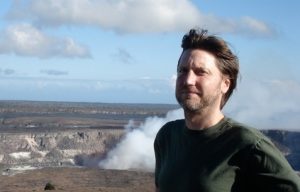
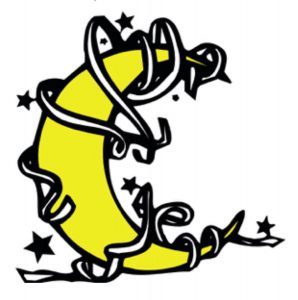 September 7-9, 2018
September 7-9, 2018